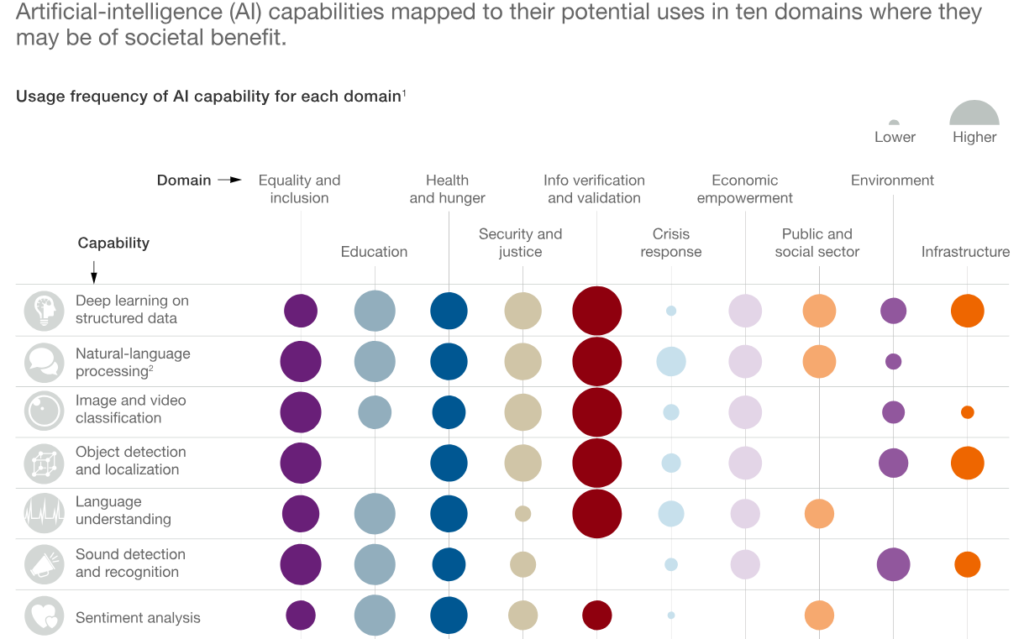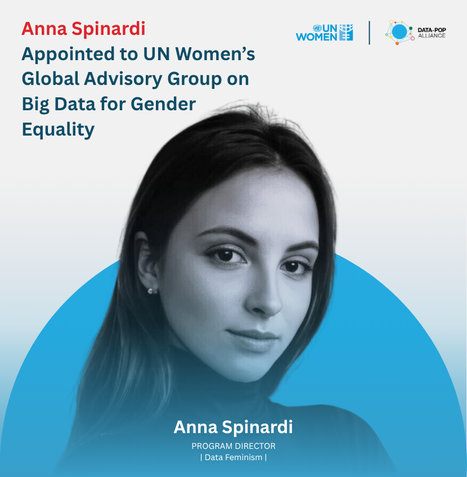LINKS WE LIKE #16
Google’s “AI for Social Good” initiative launched on October 2018, aiming to drive the adoption of “Artificial Intelligence (AI) for public good”. Beyond the buzzword, how can we define this emerging field? In this week’s Links We Like we take a closer look at projects and research that use AI for sustainable development and social good purposes.
Human AI
The paper “Towards a Human Artificial Intelligence for Human Development” , by DPA Director Emmanuel Letouzé and Academic Director Alex “Sandy” Pentland defines the concept of of “Human AI”, as the ability to apply the core principles and requirements of artificial intelligence to entire human systems. In other words, to reinforce and reward systems that “get it right” with regards to policies, programs, behaviors, and actions. As a central item in the decision-making process, AIs would generate, crunch, and take over various tasks to empower more rational policies, fairer politicians and more efficient processes. The authors argue that “a human AI would be a system where it would be difficult for an elected representative to claim credit or assign blame out of hot air, because citizens would say ‘Really? Show me the data’”. Human AI is an aspirational analogy: the goal of placing good data sources at the core of a new social contract suited for our 21st century societies.
AI Capabilities for Development
The broad applicability of artificial intelligence towards the United Nations Sustainable Development Goals is highlighted in McKinsey Global Institute’s “Applying artificial intelligence for social good”, which analyzes 160 AI social-impact use cases. This report illustrates that the most prevalent issues being addressed through AI are Health and Hunger, Environment, and Crisis Response. The figure below showcases some of these uses, mapping their frequency and the domain in which they are applied.
The infrastructure required to scale up the use of AI for social good is a critical component as access to data in an ethical, transparent, and safe manner could be outpaced by the technology of artificial intelligence itself. OPAL (Open Algorithms), a project being deployed by Data-Pop Alliance, MIT Media Lab, WEF, and leading telecoms, is designed to meet this need and enable aggregated insights to be derived from privately held data without them ever leaving their servers. The McKinsey report notes that “if proven successful, this could be a powerful tool in unlocking private data for social causes.”
Further Afield
Dive deeper into AI use across development sectors:
AI for public health:
- How Prof. Mihaela van der Schaar is developing state-of-the-art research to revolutionize medicine through AI, machine learning and data science
- How AI is “cracking the code for cystic fibrosis”
AI for emergency response:



![M002 - Feature Blog Post [WEB]](https://datapopalliance.org/wp-content/uploads/2025/10/M002-Feature-Blog-Post-WEB.png)






